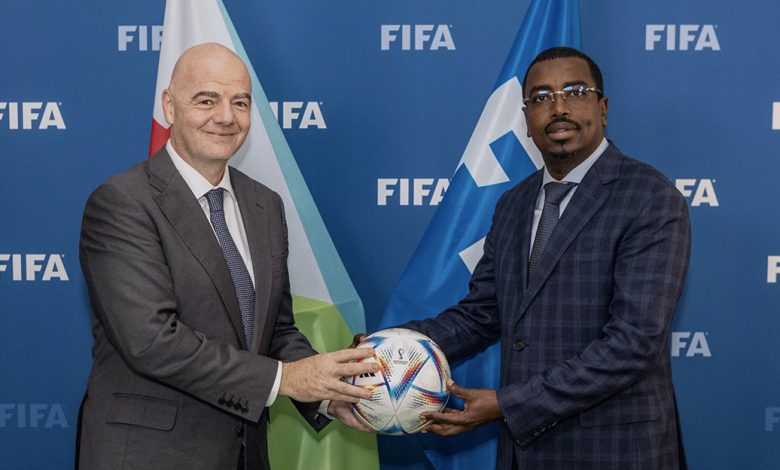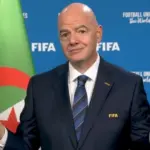Djibouti’s Souleiman Waberi announces bid for FIFA council seat

Djibouti’s prominent football administrator Souleiman Waberi has announced his candidacy for a seat on the FIFA Council, marking his ambition to represent Africa on the world football governing body’s executive board. Currently serving as the 3rd Vice-President of the Confederation of African Football (CAF), Waberi revealed his candidacy through a post on social media, underscoring his intent to further elevate African representation at the international level.
The announcement from Waberi, a respected figure in African football, follows CAF President Dr. Patrice Motsepe’s recent bid for a second term at the helm of the organization.
In his post on X (formerly Twitter), Waberi outlined his reasons for pursuing the FIFA Council seat.
He emphasized his years of dedication to CAF, citing his experience as both a CAF Vice-President and as a committed advocate for African football.
“After eight (8) years of commitment to CAF, including four (4) as vice-president, and on the recommendation of my CECAFA zone, I have, after careful consideration and consultation with my friends and colleagues, taken the decision to present my candidacy to the FIFA Council during the next CAF elections scheduled for March 12, 2025, insha allah,” Waberi shared in his announcement.
Waberi’s tenure within African football governance has spanned several years and includes his leadership as President of Djibouti’s Football Federation, a role he has stepped away from to focus on his CAF responsibilities.
His candidacy aligns with his broader vision to strengthen African representation on global football’s most influential platform, where five seats are allocated for African members alongside the position reserved for CAF’s president.
Throughout his time with CAF, Waberi has played an instrumental role in advancing African football’s standing, fostering partnerships, and supporting infrastructure development across member nations.
As the 3rd Vice-President of CAF, he has supported numerous initiatives aimed at growing the sport’s appeal and accessibility within Africa, especially in the CECAFA (Council for East and Central Africa Football Associations) region, which he represents.
Waberi’s leadership journey has been marked by a clear commitment to both his home country of Djibouti and the broader African continent.
His efforts within CAF and his current bid reflect his belief that African voices need stronger representation in FIFA’s decision-making processes, which cover key areas ranging from global tournament organization to regulatory policy.
In the upcoming election scheduled for March 2025, Waberi will face a competitive field of candidates as Africa’s football leaders decide who will join the five African representatives on the FIFA Council.
Should he be elected, Waberi will bring a wealth of experience and a deep understanding of African football’s unique challenges and aspirations to the global arena.
The Djiboutian’s supporters argue that his appointment would enhance Africa’s influence on the international stage at a time when football’s growth and governance are increasingly shaped by decisions made within FIFA.
With his dedication and long-standing presence in the sport, Waberi’s candidacy is anticipated to garner strong backing from within the CECAFA region, where he has been a key figure in football administration.
As the March elections approach, his platform will likely emphasize the need for a focused African perspective within FIFA’s top ranks—a vision he has consistently championed throughout his career.












